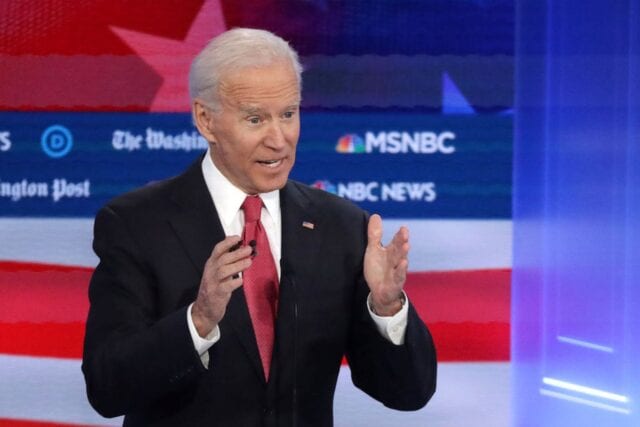
President Donald Trump has been a boon to world leaders looking to tout their climate bonafides. A simple “hey, at least we’re not that guy” has helped other countries launder some watered-down climate goals.
Now that Joe Biden is president-elect, it changes the equation. It’s not that Biden is a huge progressive climate champion (yet). But he has pledged to be more aggressive on climate and reposition the U.S. in a leadership role internationally. World leaders will now have to contend with that, and
Canada is already providing a first test case.
This is a decade that will require rapid action to reduce carbon pollution and protect the climate for current and future generations. The Keystone XL pipeline, a polluting project slated to run from Canada’s tar sands to Nebraska that’s been widely opposed in both countries, is perhaps the most egregious example in North America of a project that is not consummate with that level of action. The pipeline is designed to transport 800,000 barrel of tar sands oil and would lock in 1 billion tons of carbon pollution, according to a 2015 Environmental Protection Agency analysis. It, along with other fossil fuel projects being planned, would effectively end our best chance at meeting the Paris Agreement goals.
Canadian Prime Minister Justin Trudeau is the first world leader to speak with Biden as president-elect. In a tweet, he said he looked forward to working with Biden on climate change as well as getting the pandemic under control. According to the CBC, though, part of their talk also covered the fate of the Keystone XL pipeline. Just the day prior to Trudeau and Biden chatting, Canadian Foreign Minister François-Philippe Champagne told CBC that ensuring the U.S. would still allow the pipeline to be built was a “top of the agenda” item for the Canadian government.
G/O Media may get a commission
It’s the type of contradictory talk that has plagued world leaders for years. While Canada is heavily dependent on oil for its economy, it has also postured as a climate leader under Trudeau’s leadership. The prime minister said less than two months ago, “climate action will be a cornerstone of our plan” to recover from the coronavirus. It’s hard to square that with bringing up Keystone XL with said recovery in his first talk with Biden.
Getting the Keystone XL pipeline is the exact opposite of a climate cornerstone, unless by cornerstone you mean throwing a match into a pile of oil-soaked rags. The pipeline has had a tumultuous history. Then-President Barack Obama rejected the pipeline in 2015 only for Trump to reverse course almost as soon as he came into office. What came next was a winding court battle that made its way all the way to the U.S. Supreme Court. Biden has said he would reject the pipeline, though the oil crash tied to the pandemic might already have been a fatal blow, as Canadian tar sands have been hit particularly hard.
On his transition site, Biden said he’ll re-enter the Paris Agreement and “go much further than that.” In the context of Canada, it means winding down projects like Keystone XL and cooperating on building a new clean economy. But there will be ample other opportunities to sort the climate pretenders from those who are ready to get down to the business of not destroying the planet.
Climate Home noted that Biden has also said he will “name and shame global climate outlaws” and publish a report ranking countries’ climate performance. The outlet pointed to some of the scofflaws that could no longer hand wave at Trump worsening the climate crisis so that they could keep polluting as well, including Australia, Brazil, and Russia.
Those three countries are among the biggest laggards on climate change, having invested in polluting industries as a means to grow their economies. All have also enjoyed support from Trump, who has even given them cover for their terrible climate records. During last year’s explosive Amazon fire season driven by illegal logging and land clearing, Trump tweeted that Brazilian President Jair Bolsonaro was “working very hard on the Amazon fires” when the exact opposite was true.
Countries like China that have recently moved to clean up their act and announced major climate goals. In China’s case, the country has targeted 2060 for net-zero emissions, but a Biden administration can push it to be much more aggressive in setting near-term goals rather than nebulous 40-year targets that sound good.
The U.S., of course, will also have to get its own act together. Even with Biden in the White House, legislation to lock in climate action hinges on two Georgia Senate runoff races. Without the Senate, the path to action becomes more narrow and could reverse course in four years if a Republican wins the White House in 2024. And if we’re being real, Democrats had a unified government during Obama’s first term and the world looked on the brink of an international climate breakthrough, but the logjam remained and the climate has suffered for it. Climate success has remained elusive both at home and abroad, and Biden simply being in office is nothing close to a guarantee.
But the election coupled with rising pressure from activists and everyday people has set the stage for Biden and other world leaders to either put up or shut up on climate. Which is good because there’s no time to waste, and the whole world is watching.
Source: gizmodo.com








